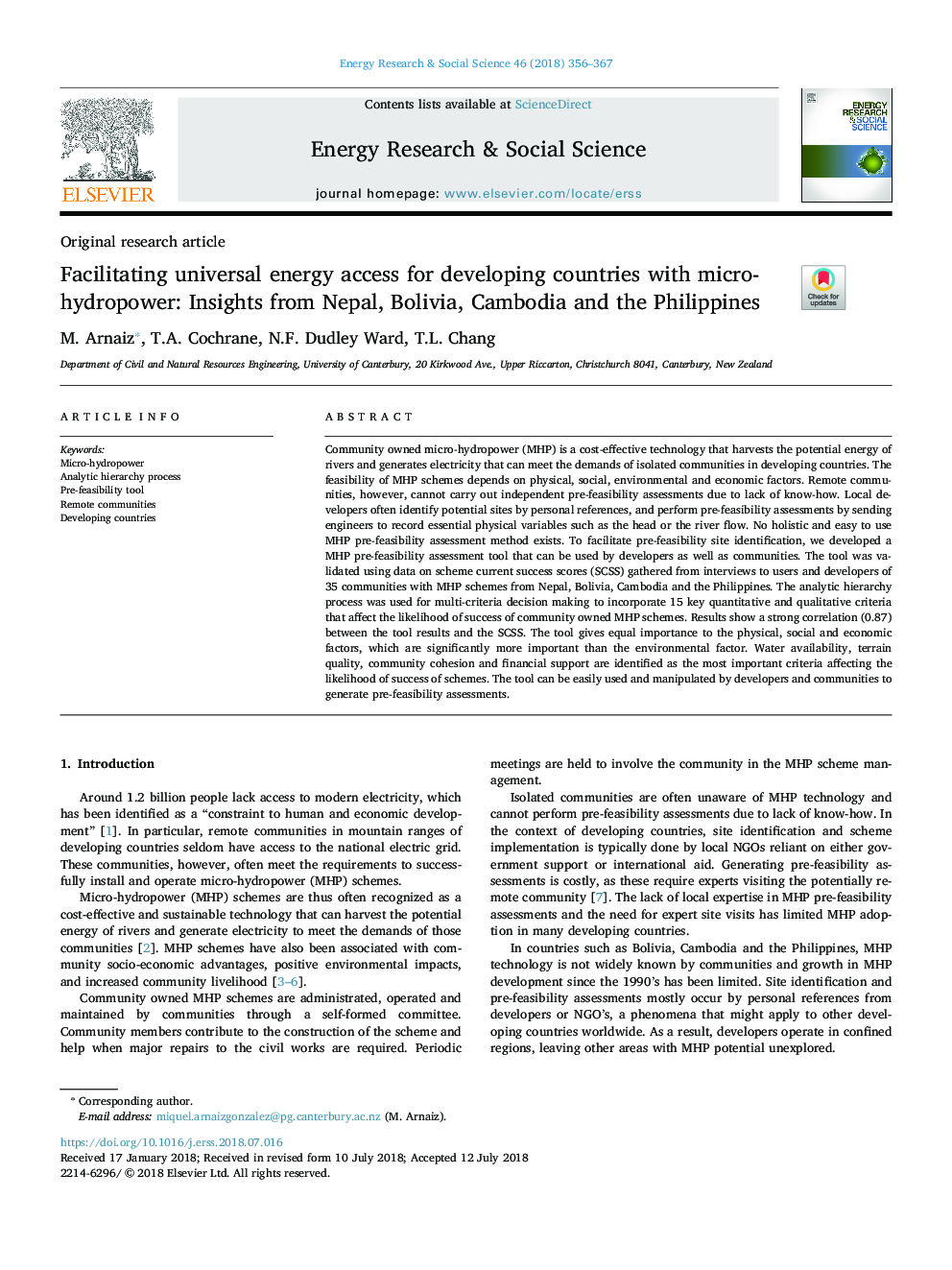| کد مقاله | کد نشریه | سال انتشار | مقاله انگلیسی | نسخه تمام متن |
|---|---|---|---|---|
| 11000184 | 1422557 | 2018 | 12 صفحه PDF | دانلود رایگان |
عنوان انگلیسی مقاله ISI
Facilitating universal energy access for developing countries with micro-hydropower: Insights from Nepal, Bolivia, Cambodia and the Philippines
ترجمه فارسی عنوان
تسهیل دسترسی جهانی انرژی برای کشورهای در حال توسعه با انرژی خورشیدی: آمار نپال، بولیوی، کامبوج و فیلیپین
دانلود مقاله + سفارش ترجمه
دانلود مقاله ISI انگلیسی
رایگان برای ایرانیان
کلمات کلیدی
میکرو آبی، روند سلسله مراتب تحلیلی، ابزار پیش امکان سنجی، جوامع از راه دور، کشورهای در حال توسعه،
موضوعات مرتبط
مهندسی و علوم پایه
مهندسی انرژی
انرژی (عمومی)
چکیده انگلیسی
Community owned micro-hydropower (MHP) is a cost-effective technology that harvests the potential energy of rivers and generates electricity that can meet the demands of isolated communities in developing countries. The feasibility of MHP schemes depends on physical, social, environmental and economic factors. Remote communities, however, cannot carry out independent pre-feasibility assessments due to lack of know-how. Local developers often identify potential sites by personal references, and perform pre-feasibility assessments by sending engineers to record essential physical variables such as the head or the river flow. No holistic and easy to use MHP pre-feasibility assessment method exists. To facilitate pre-feasibility site identification, we developed a MHP pre-feasibility assessment tool that can be used by developers as well as communities. The tool was validated using data on scheme current success scores (SCSS) gathered from interviews to users and developers of 35 communities with MHP schemes from Nepal, Bolivia, Cambodia and the Philippines. The analytic hierarchy process was used for multi-criteria decision making to incorporate 15 key quantitative and qualitative criteria that affect the likelihood of success of community owned MHP schemes. Results show a strong correlation (0.87) between the tool results and the SCSS. The tool gives equal importance to the physical, social and economic factors, which are significantly more important than the environmental factor. Water availability, terrain quality, community cohesion and financial support are identified as the most important criteria affecting the likelihood of success of schemes. The tool can be easily used and manipulated by developers and communities to generate pre-feasibility assessments.
ناشر
Database: Elsevier - ScienceDirect (ساینس دایرکت)
Journal: Energy Research & Social Science - Volume 46, December 2018, Pages 356-367
Journal: Energy Research & Social Science - Volume 46, December 2018, Pages 356-367
نویسندگان
M. Arnaiz, T.A. Cochrane, N.F. Dudley Ward, T.L. Chang,
